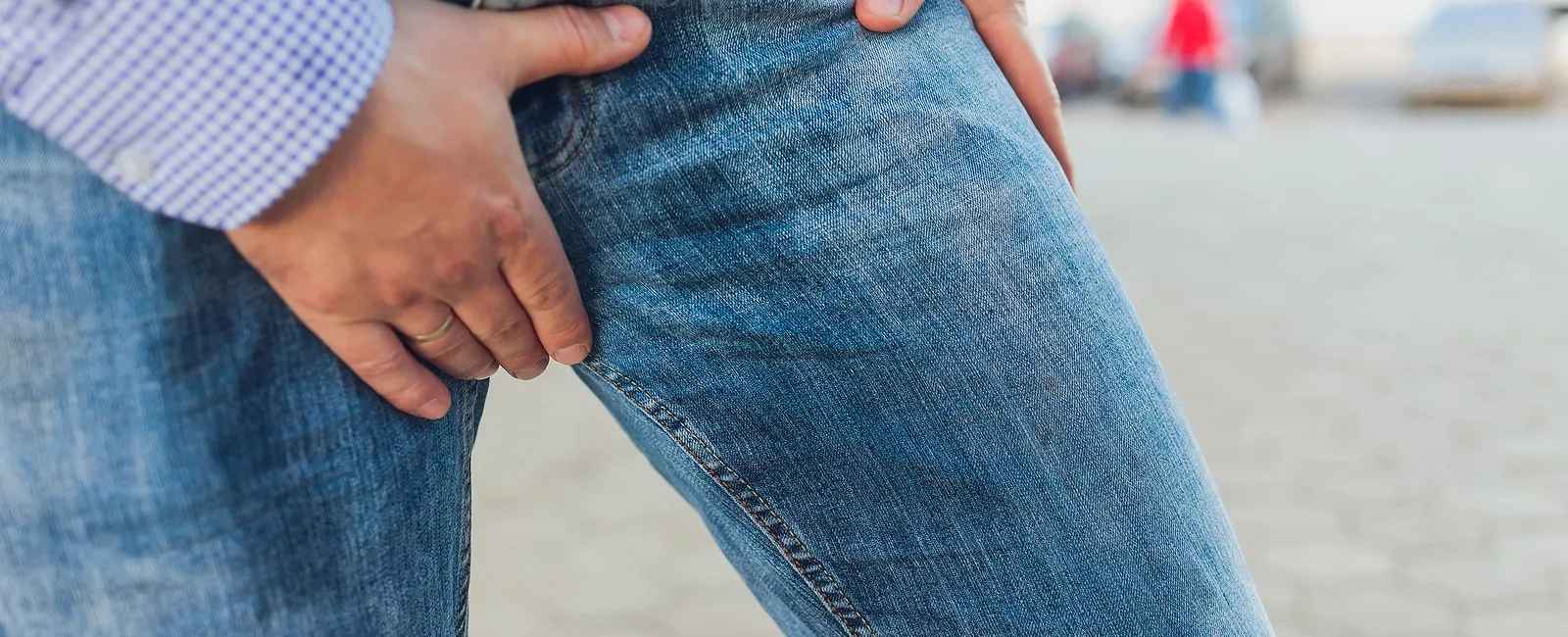You're out having a good time with your friends, telling old stories, and joking around. Everyone is laughing and having fun… until you laugh so much you pee a little. While leaking urine while you laugh can ruin the mood and be embarrassing, it is quite common. If you've ever wondered, why do I pee when I sneeze or laugh? you aren't alone. The involuntary loss of urine is caused by urinary incontinence and it affects more than 25 million Americans every day. We're answering common questions about urinary incontinence and sharing signs of when you should see a doctor.
What is urinary incontinence?
Urinary incontinence occurs when you leak urine in any situation other than using the restroom. There are several kinds of urinary incontinence, including:
- Urge incontinence - Usually marked by a sudden and intense need to urinate and results in involuntary loss of urine.
- Overflow incontinence - Occurs when the bladder is too full and results in the involuntary loss of urine.
- Stress incontinence - Occurs when you involuntarily leak urine while laughing, jumping, sneezing, or coughing and is typically caused by a weak sphincter (the muscle at the base of the bladder that holds urine in).
Who is affected by urinary incontinence?
Both men and women are affected by urinary incontinence, but the causes of male urinary incontinence can differ from the causes of female urinary incontinence. Women may experience urinary incontinence due to pregnancy, labor and delivery, and weak pelvic floor muscles, while men may experience urinary incontinence due to an enlarged prostate, removal of the prostate, or weak pelvic floor muscles. If you sneeze and some pee slips out or you do some jumping jacks and urine leaks, you may have male stress incontinence.
What causes male stress incontinence?
The most common cause of male stress incontinence is the removal of an enlarged prostate gland, called a prostatectomy. The removal of the support of the prostate (which wraps around the urethra and sits under the bladder), can cause male stress incontinence. Damage to the sphincter can also cause male stress incontinence.
Is it normal to pee while coughing?
Most men with male stress incontinence will experience a few drops of urine leaking when coughing, sneezing, laughing, jumping, running, or even swinging a golf club. Some men can experience a full urine stream that will soak their pants. If you have male stress incontinence, any activity that creates sudden pressure on the bladder—like coughing—can cause the involuntary loss of urine.
How to stop peeing when I cough?
The good news is male stress incontinence is treatable. You do not need to live with the inconvenience or embarrassment of leaking urine while coughing, laughing, sneezing, or jumping any longer. Treatment options can range from pelvic floor muscle exercises to medication to a simple procedure to have a sling placed around your urethra.
What are treatments for male stress incontinence?
There are many treatment options available for male stress incontinence—from over-the-counter medications to surgical treatments. Treatments should be recommended by a physician after a thorough evaluation. Treatment options will vary for every person but may include:
Non-invasive Treatments
- Lifestyle changes - Your doctor may recommend you avoid caffeine and be conscious of the amount of fluids you consume daily. These two changes can impact your urine output.
- Pelvic Floor Exercises - Pelvic floor exercises can be recommended by your doctor or a physical therapist and include exercises like Kegels or squats for incontinence treatment. Strengthening the muscles in your pelvic floor can help prevent urine leakage.
- Biofeedback - Biofeedback is paired with pelvic floor exercises to help ensure you are working your pelvic floor muscles and not your abdominal muscles.
- Surgical Treatments
- Male Sling - Slings provide instant relief from stress incontinence. Your doctor will make a small incision at the perineum to insert a mesh sling around the urethra. You can go home the same day as the procedure.
- Artificial Urinary Sphincter - Artificial Urinary Sphincters are mechanical devices that are placed around the urethra to control the flow of urine. They work like a blood pressure cuff and you release the pressure when you are ready to use the restroom.
When should I see a doctor?
If you have experienced a weak bladder when laughing, coughing, sneezing, running, or jumping that has resulted in the involuntary loss of urine, you should make an appointment to see your doctor. Urinary incontinence can significantly impact your quality of life, affecting your daily activities and even psychological stress. Incontinence is treatable and you do not need to live with the unpleasant, embarrassing, or stressful situation of leaking urine any longer. When looking for a doctor, search for a board-certified urologist. They will have dedicated training in urinary incontinence and be able to provide the most targeted treatments to fix your urinary incontinence and improve your quality of life.

